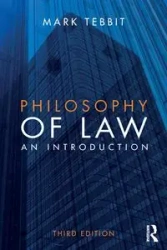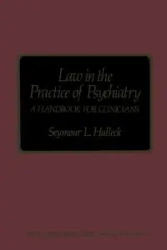Książki prawnicze po angielsku
( ilość produktów: 2595 )Książki obcojęzyczne - Prawo, Książki dla praktyków : Angielski

Philosophy of Law - Mark Tebbit
- Autorzy:

The Wealth Money Can't Buy - Robin Sharma
- Autorzy:

Tax cancellation: A comparative analysis - Piotr Buława
- Autorzy:

Transnational Evaluation of Constitutions - Ali Shirvani
- Autorzy:

Nudging - Possibilities, Limitations and Applications in European Law and Economics - Mathis Klaus

Principles of Law Relating to International Trade - Nicholas Kouladis
- Autorzy:

Goals of Civil Justice and Civil Procedure in Contemporary Judicial Systems - Uzelac Alan

Innovation in Scientific Research and Emerging Technologies - Laura Palazzani
- Autorzy:

Marine Resource Conservation and Poverty Reduction Strategies in Tanzania - Jennifer K. Sesabo
- Autorzy:

Business, Human Rights and the Environment - Macchi Chiara
- Autorzy:

Prevention of Pollution of the Marine Environment from Vessels - Karim Md Saiful
- Autorzy:

Market Integration Through Data Protection - Viola Mario de Azevedo Cunha
- Autorzy:

Comparing the Prospective Effect of Judicial Rulings Across Jurisdictions - Eva Steiner
- Autorzy:

Antitrust in the Groceries Sector & Liability Issues in Relation to Corporate Social Responsibility - Kobel Pierre

Market Design Powers of the European Commission? - Reiter Korbinian
- Autorzy:

Colonial Heritage and Urban Transformation in the Global South - Christian Ernsten
- Autorzy:

Transnational Legal Activism in Global Value Chains - Saage-Maaß Miriam

Promoting Competition in Innovation Through Merger Control in the ICT Sector - Tyagi Kalpana
- Autorzy:
Prawo - książki po angielsku dla studentów, naukowców i specjalistów
W bogatej i zróżnicowanej ofercie naszej księgarni internetowej Matfel.pl znajdują się nie tylko polskie publikacje prawnicze. W tej kategorii zapewniamy również szeroki wybór prawo książki po angielsku. Dzięki temu nasi klienci mogą rozwijać swoje umiejętności językowe (takie jak czytanie ze zrozumieniem i poszerzanie słownictwa) jednocześnie pogłębiając wiedzę prawniczą. Książki prawnicze po angielsku to doskonałe źródło wiedzy dla studentów prawa i administracji, a także wszystkich prawników, prokuratorów, mediatorów czy sędziów, którzy chcą perfekcyjnie znać terminologię prawniczą w języku angielskim i pragną uaktualnić swoją wiedzę.
Prawo pracy książka po angielsku
Wśród naszych publikacji znajdują się publikacje na najróżniejsze tematy. Zapewniamy między innymi także książki dotyczące prawa pracy. Bez względu na to, czy jesteś prawnikiem specjalizującym się w prawie pracy, czy studentem prawa, który chce poszerzyć swoją wiedzę lub księgowym zajmującym się kadrami i płacami - nasza szeroka oferta prawo pracy książka po angielsku na pewno Cię zainteresuje. Książki prawnicze po angielsku na temat prawa pracy pozwalają nie tylko na zdobycie wiedzy, ale również na zdobycie praktycznych umiejętności potrzebnych w pracy prawnika i nie tylko.
Prawo budowlane książka po angielsku
Nie zapomnieliśmy również o tych, którzy specjalizują się w prawie budowlanym. W ofercie naszej księgarni internetowej Matfel.pl zapewniamy także prawo budowlane książka po angielsku. Publikacje te stanowią doskonałe źródło wiedzy dla prawników, inżynierów budowlanych, jak również osób pracujących na stanowiskach zarządzania projektami budowlanymi. Książki prawnicze po angielsku z dziedziny prawa budowlanego to kompendium wiedzy na temat regulacji prawnych związanych z budownictwem, a także praktyczne porady prawne z tego zakresu.
Co więcej, książki i podręczniki dotyczące prawa budowlanego są nieocenione dla osób, które planują budowę domu albo mieszkania i pragną zrozumieć swoje prawa i obowiązki podczas procesu budowlanego. Warto wiedzieć, co można zrobić bez pozwolenia, a kiedy wymagane jest złożenia pisma w konkretnym urzędzie i nie tylko.
Prawo cywilne po angielsku
Fanom prawa cywilnego również mamy coś do zaoferowania. W ofercie Matfel.pl mamy wiele świetnych książek na temat prawa cywilnego dostępnych w języku angielskim. Z prawo cywilne po angielsku możesz dowiedzieć się wszystkiego, co powinieneś wiedzieć o tej ważnej dziedzinie prawa. Nasze książki prawnicze po angielsku pokrywają wszystkie kluczowe obszary prawa cywilnego, od prawa kontraktów po prawa autorskie, prawo własności intelektualnej i wiele innych. Natomiast, jeśli szukasz książek i podręczników o prawie cywilnym napisanych przez uznanych autorytetów, nasz sklep jest idealnym miejscem do ich znalezienia. Wybierz jedną z naszych książek, aby poszerzyć swoją wiedzę prawniczą i odkryć najnowsze trendy w prawie cywilnym. Zapraszamy do zakupów.
















